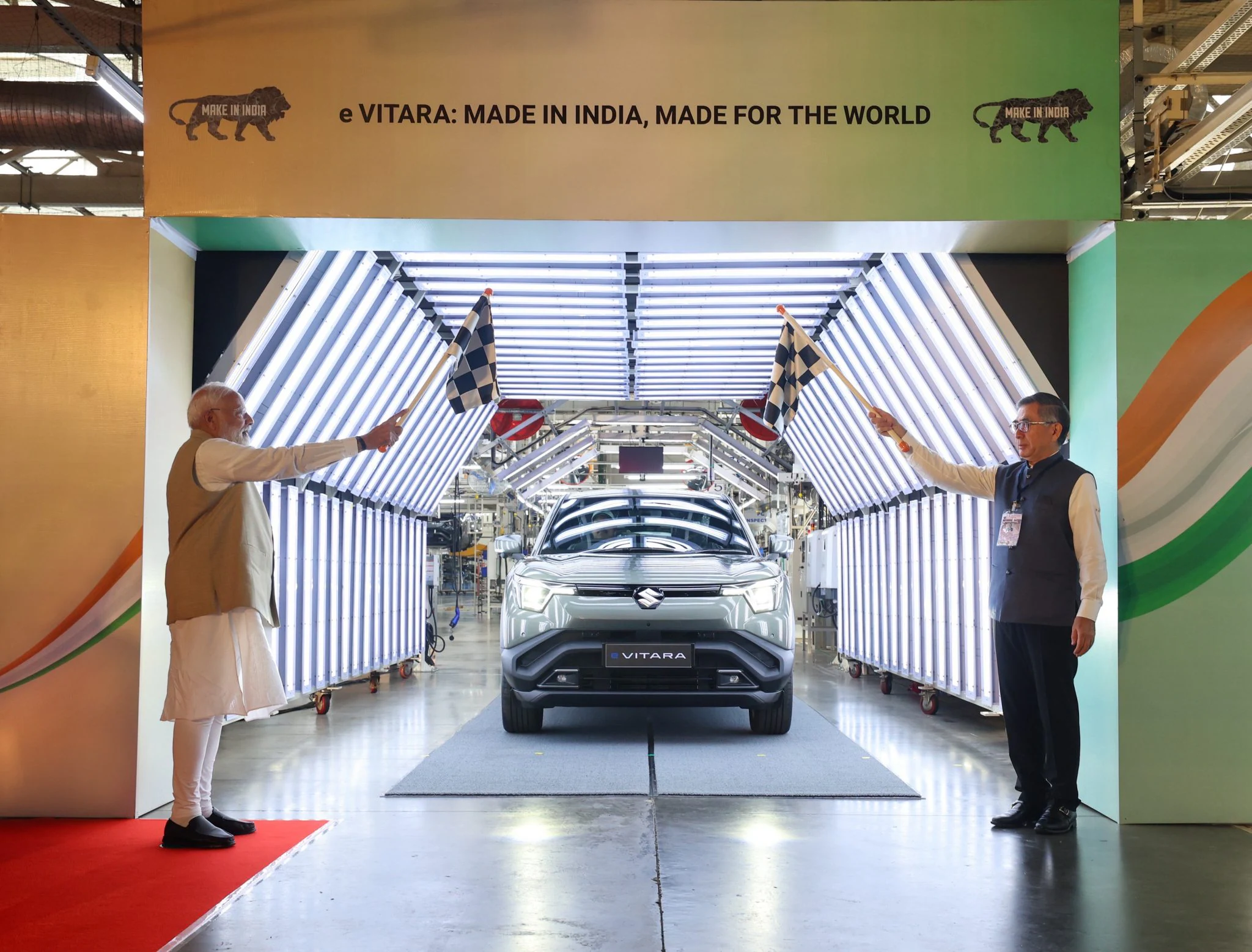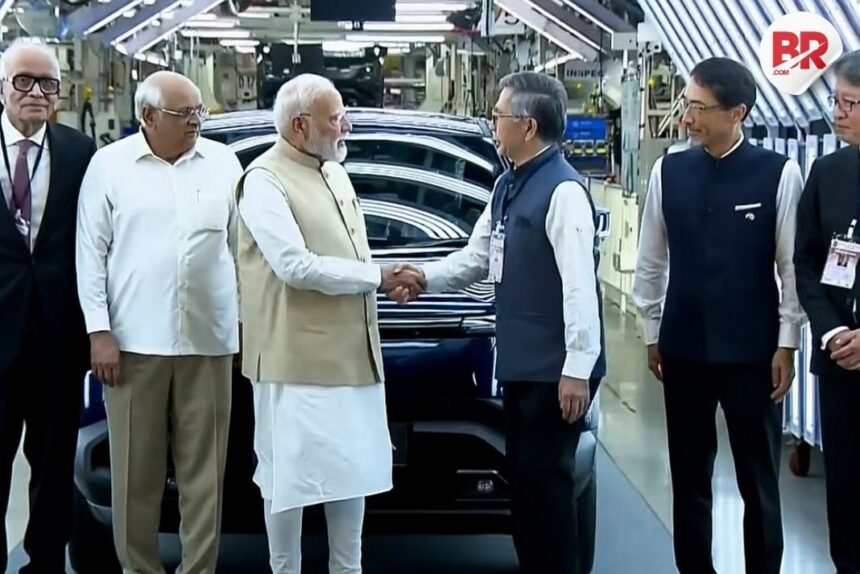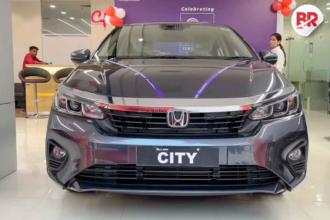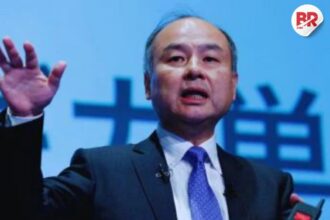
Maruti Suzuki and its parent company Suzuki Motor (Japan) announced that they will invest ₹70,000 crore in India over the next 5–6 years. The investment will mainly focus on electric and green mobility, but the company admitted that making batteries for electric vehicles (EVs) in India is still a big challenge due to the lack of lithium-ion reserves.
At an event attended by Prime Minister Narendra Modi, Maruti rolled out its first fully-electric car – the eVitara. Interestingly, the SUV will first be exported to Japan and Europe, and later introduced in the Indian market. The eVitara will also be exported to over 100 countries, with India serving as the only global manufacturing hub for this model.


Maruti said its Gujarat facility will soon become one of the world’s largest car manufacturing plants, with the capacity to produce 1 million cars annually. This facility has been chosen as the production base for the eVitara.
The company also started making India’s first lithium-ion battery and cell with localised components, which will be used in its hybrid vehicles. However, making large batteries for fully-electric cars is still tough.
Maruti’s chairman R.C. Bhargava explained that India does not manufacture EV battery cells, and setting up such plants requires very high investment. On top of that, lithium (the key raw material) is not available in India, making it difficult to secure supplies. The only option is to partner with foreign companies—especially from China—but that often means giving them a majority stake.
Suzuki’s global president added that the company is committed to sustainability and clean technologies, and will continue to bring new models powered by green and hybrid technology.












